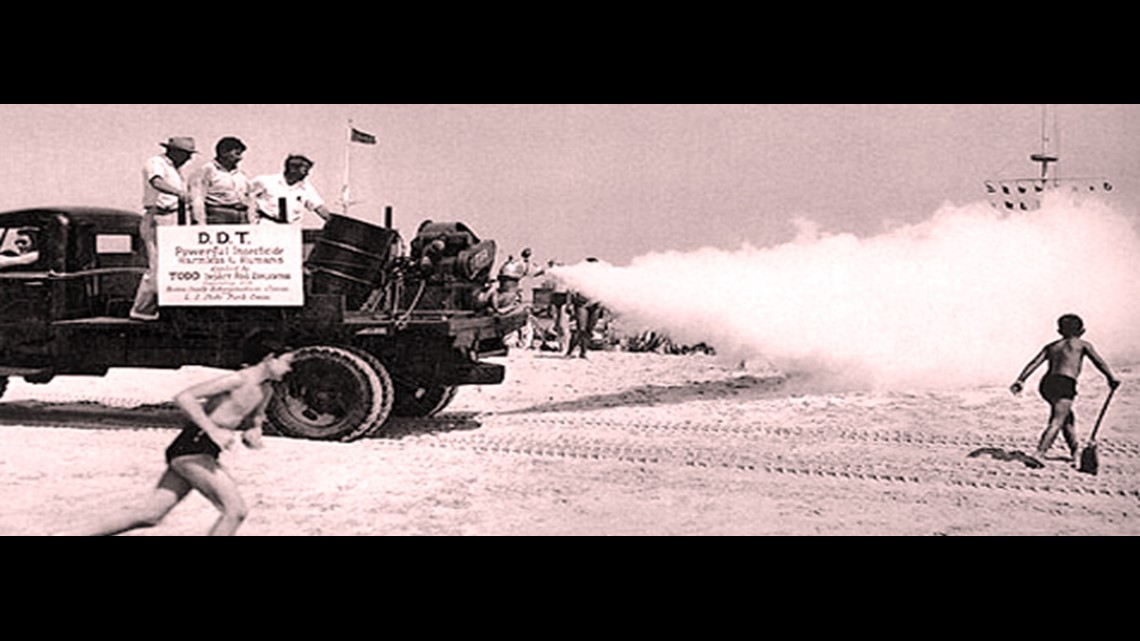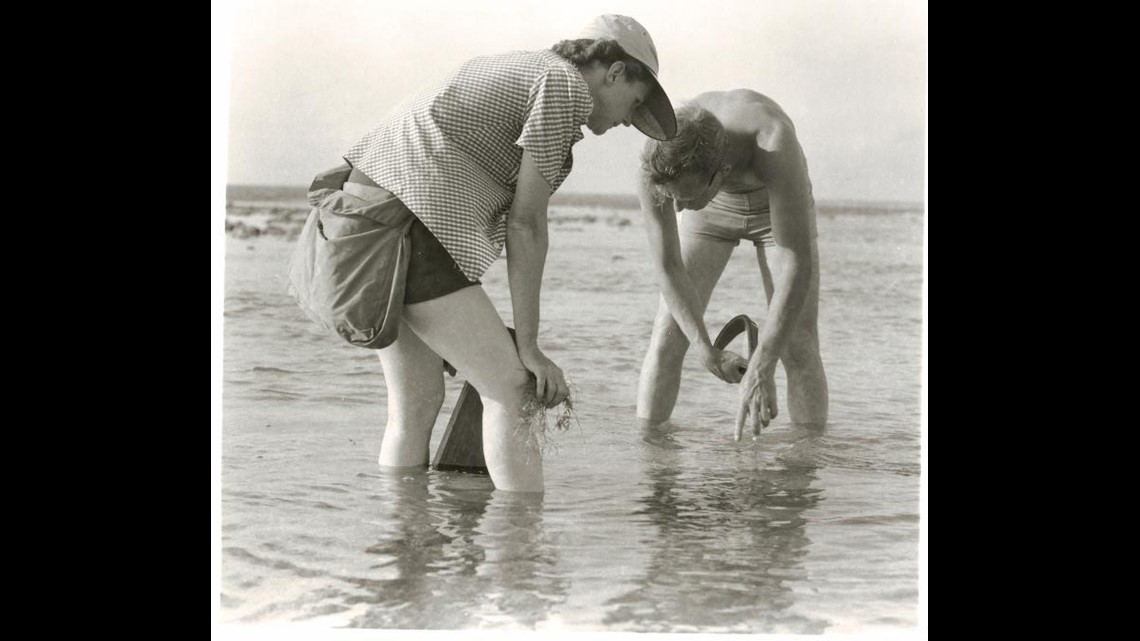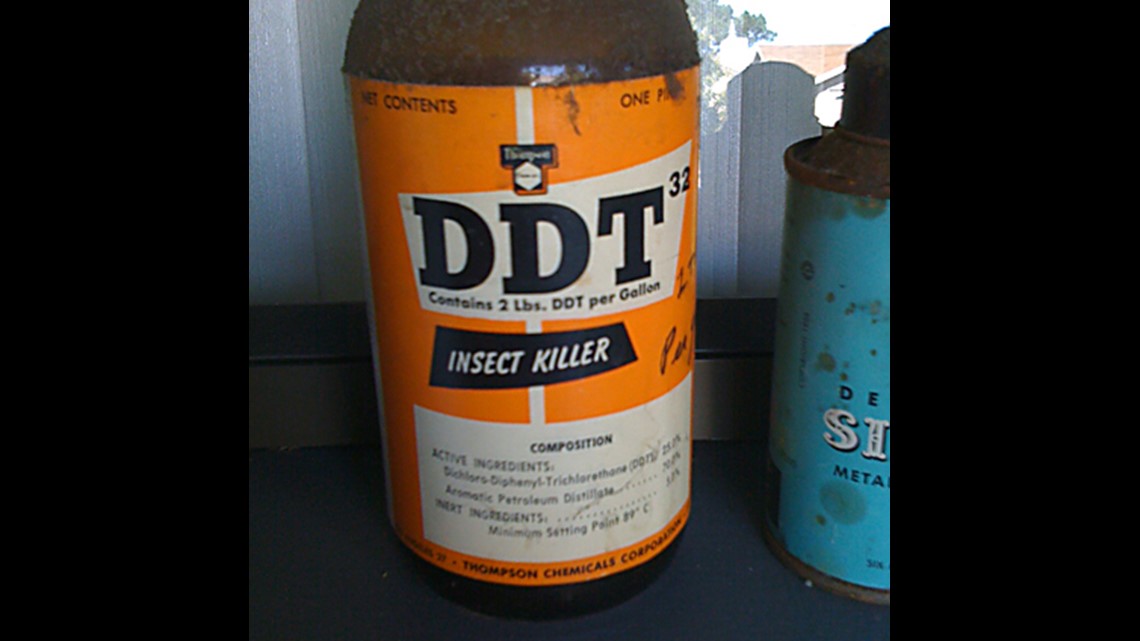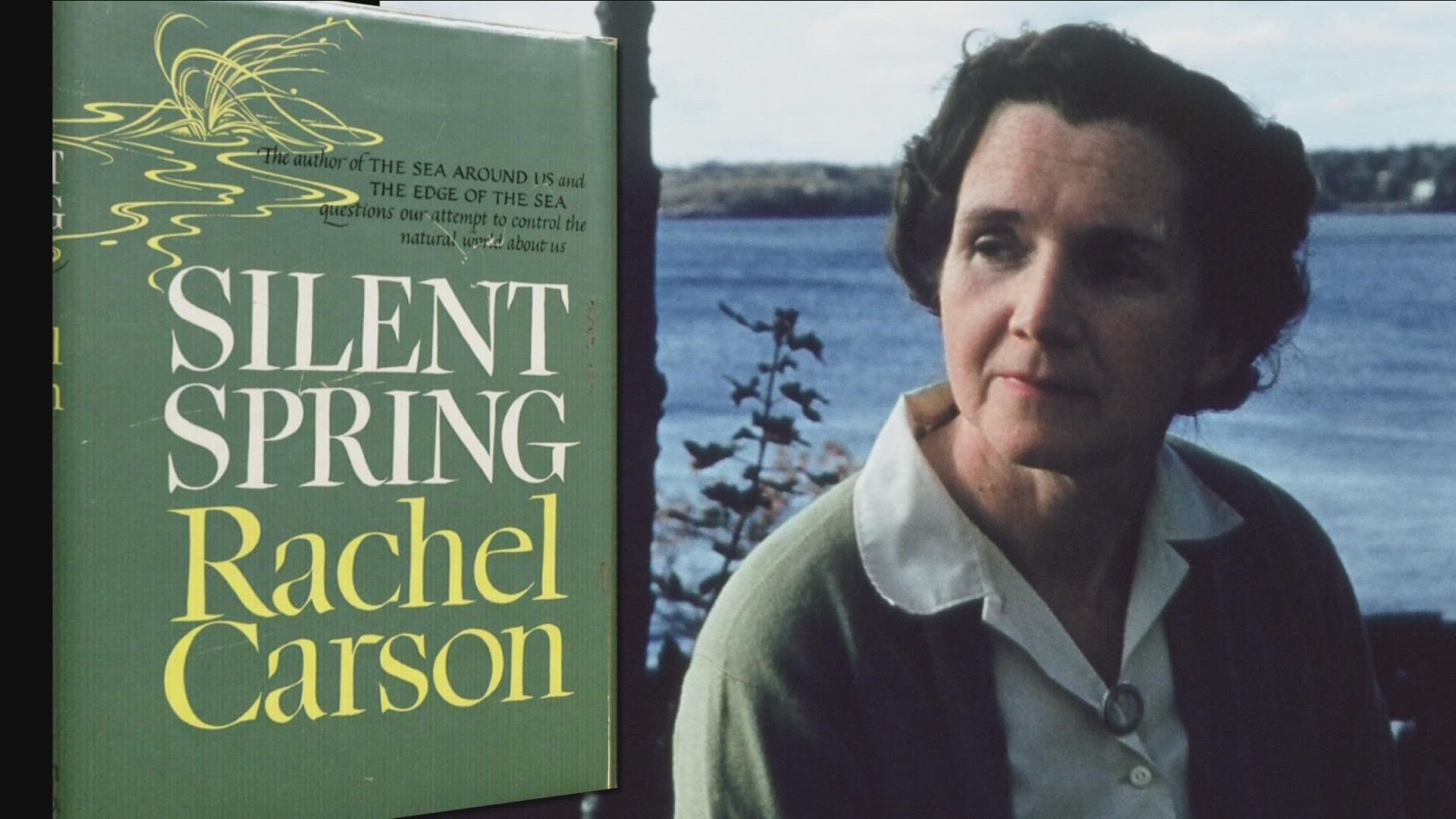BUFFALO, N.Y. — Rachel Carson's book, "Silent Spring" was first published on September 27, 1962, and its impact caused a wave of change that is still felt 60 years later.
Her voice was a catalyst for change at a time when the Earth needed it most. The years after WWII saw a rise in the use of chemical pesticides, and boasted the promise of progress. The reality was much different.
Adam Rome, a Professor of Environment and Sustainability at the University at Buffalo, explains.
"They were everywhere, you know people used them, obviously farmers on their fields, but consumers at home, you know, you could buy paint that had pesticide in it, you could buy little bug bombs for your house, government agencies were spraying everywhere, even in pools, to keep down mosquitoes."


It soon became apparent that the negative effects of the chemicals were causing a cascade of damage.
"They were killing Eagles, they were killing birds, they were killing fish, and there was also mounting evidence that they could affect us, that they could cause cancer, that they could cause genetic damage, that they could cause fertility problems," Rome said.


Carson's book had an immediate influence on society. Pesticide use became regulated, and some were even banned, as in the case of DDT. But her legacy extends well beyond that.
"She, more than anyone, any person, was responsible for the rise of the environmental movement, and not just environmental activism." Rome continues." Ultimately, she pointed to a different way of dealing with the problem of pests, and that became the seed of a whole, all kinds of efforts to create an alternative technology that was Nature friendly."


Rachel Carson achieved all of this while her health was seriously declining. She died less than two years after its publication. Even after all these decades, Rome believes her strength still resonates.
"She was alone, she was just a writer, she had no institutional support, she didn't work for a university, she didn't work for a not-for-profit, she knew she was going to be attacked, and she was willing, just as one solitary, prophetic individual to stand up to that because she believed she had something really important to say."
RELATED:

